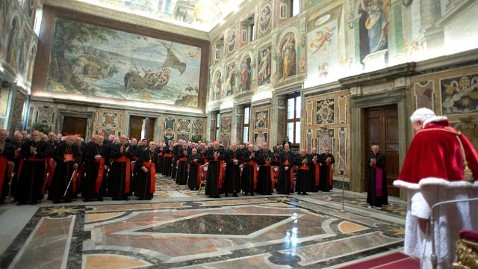LONDON (AP) — People exposed to the highest doses of radiation during Japan's Fukushima nuclear plant disaster in 2011 may have a slightly higher risk of cancer but one so small it probably won't be detectable, the World Health Organization said in a report released Thursday.
A group of experts convened by the agency assessed the risk of various cancers based on estimates of how much radiation people at the epicenter of the nuclear disaster received, namely those directly under the plumes of radiation in the most affected communities in Fukushima, a rural agricultural area about 150 miles (240 kilometers) north of Tokyo.
Some 110,000 people living around the Fukushima Dai-ichi nuclear plant were evacuated after the massive March 11, 2011, earthquake and tsunami knocked out the plant's power and cooling systems, causing meltdowns in three reactors and spewing radiation into the surrounding air, soil and water.
Experts calculated that people in the most affected regions had an additional 4 to 7 percent overall risk of developing cancers, including leukemia and breast cancer. In Japan, men have about a 41 percent lifetime risk of developing cancer of an organ, while a woman's lifetime risk is about 29 percent. For those most hit by the radiation after Fukushima, their chances of cancer would rise by about 1 percent.
"These are pretty small proportional increases," said Richard Wakeford of the University of Manchester, one of the authors of the report.
"The additional risk is quite small and will probably be hidden by the noise of other (cancer) risks like people's lifestyle choices and statistical fluctuations," he said. "It's more important not to start smoking than having been in Fukushima."
Experts had been particularly worried about a spike in thyroid cancer, since iodine released in nuclear accidents is absorbed by the thyroid, especially in children. After the Chernobyl disaster, about 6,000 children exposed to radiation later developed thyroid cancer because many drank contaminated milk after the accident.
In Japan, dairy radiation levels were closely monitored, but children are not big milk drinkers there.
WHO estimated that women exposed as infants to the most radiation after the Fukushima accident would have a 70 percent higher chance of getting thyroid cancer in their lifetimes. But thyroid cancer is extremely rare and the normal lifetime risk of developing it is about 0.75 percent. That lifetime risk would be 0.5 percent higher for those women who got the highest radiation doses as babies.
Wakeford said the increase in such cancers may be so small it will probably not be observable.
For people beyond the most directly affected areas of Fukushima, Wakeford said the projected risk from the radiation dropped dramatically. "The risks to everyone else were just infinitesimal."
Some experts said it was surprising that any increase in cancer was even predicted and believe that the low-dose radiation people in Fukushima received hasn't been proven to raise the chances of cancer.
"On the basis of the radiation doses people have received, there is no reason to think there would be an increase in cancer in the next 50 years," said Wade Allison, an emeritus professor of physics at Oxford University, who was not connected to the WHO report. "The very small increase in cancers means that it's even less than the risk of crossing the road," he said.
Gerry Thomas, a professor of molecular pathology at Imperial College London, accused the WHO of hyping the cancer risk.
"It's understandable that WHO wants to err on the side of caution, but telling the Japanese about a barely significant personal risk may not be helpful," she said.
Thomas said the WHO report used inflated estimates of radiation doses and didn't properly take into account Japan's quick evacuation of people from Fukushima.
"This will fuel fears in Japan that could be more dangerous than the physical effects of radiation," she said, noting that people living under stress have higher rates of heart problems, suicide and mental illness.
___
Mari Yamaguchi in Tokyo contributed to this report.











